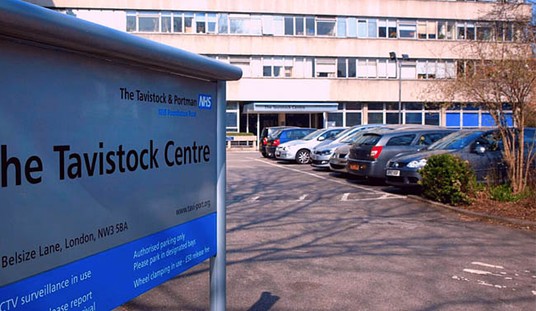Believe it or not, there may be greater support for repeal within military families than within the general population. In a Pew poll taken earlier this month, 58 percent of Americans said they support letting gays serve openly. That’s not precisely the same question the Pentagon asked in its survey of troops, but it’s close:
A majority — about 55 percent — of respondents to a survey sent to 400,000 servicemembers in the active and reserve components said allowing gays to serve openly would have either no effect or a balance of positive and negative effects on the military, and between 15 and 20 percent said such a change would have only positive effects.
About 30 percent of respondents said overturning the law would have a mostly negative impact, and those respondents mostly were part of the warfighting specialties, Ham said.
Fully 69 percent of troops surveyed said they’d already served with someone they believed to be gay, and of that number, 92 percent said the experience had been either good or neutral. (Among combat troops, 89 percent of Army soldiers and 84 percent of Marines had good/neutral experiences.) The full report’s available on the DOD’s website along with press releases emphasizing that Gates and Mullen endorse the findings. Although Gates, very shrewdly, added this caveat:
Gates said the military needs time to prepare for such an adjustment, even though he said he didn’t envision any changes to housing or other personnel policies. He said a sudden, court-issued mandate would significantly increase the risk of disruption.
“Given the present circumstances, those that choose not to act legislatively are rolling the dice that this policy will not be abruptly overturned by the courts,” Gates told reporters.
He’s couching that in terms of readiness but I’ve made the same point before in terms of political saleability: Americans don’t like big policy shifts “imposed immediately by judicial fiat,” in Gates’s words, so this transition is likely to be smoother if it gets the official congressional democratic seal of approval. Which it probably will: In the Pew poll linked above, conservative Republicans oppose repeal but practically every other demographic is in favor, including Republicans overall if you include leaners. Reid’s not going to get DeMint voting for this but Lugar, Murkowski, Collins, and a few others? Sure, why not?
The one notable caveat to the findings: Combat troops are decidedly less enthusiastic about this than the rest of the military.
However, the survey said that 48 percent of Army combat troops and 58 percent of Marines in combat units feared the change would affect their ability to fight, though the report said those statistics were contradicted when service members were asked about their actual experience.
“The percentage distinctions between warfighting units and the entire military are almost non-existent when asked about the actual experience of serving in a unit with someone believed to be gay,” the report found.
As you’ll see, Gates is vowing to focus first and foremost on minimizing the disruption to combat units if the law is repealed. And according to the results of the survey, it may be that relatively few gay troops will actually take advantage of the new policy to come out. Just 15 percent of those who identified as gay said they’d want everyone in their unit to know.







Join the conversation as a VIP Member